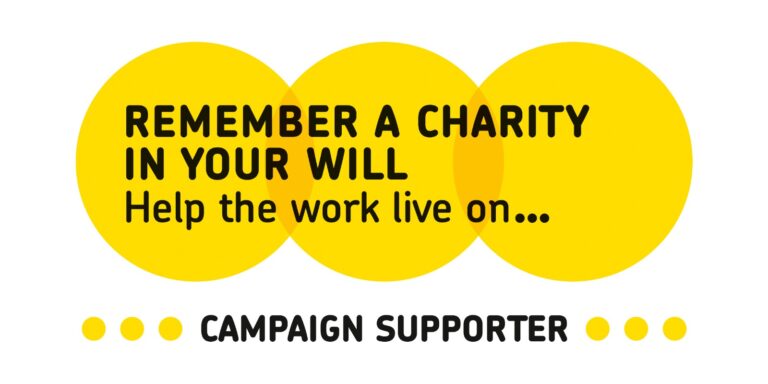Conducting a funeral during COVID-19
How many people can attend a funeral? Can a funeral take place for someone whose death was due to or related to COVID-19? Can vulnerable people attend a funeral?
This article outlines the most recent coronavirus guidelines in place to ensure you can still grieve properly in these unprecedented times.

Conducting a funeral during COVID-19
On 12 October 2020, the government outlined a new system of local COVID-19 alert levels.
There are additional restrictions in areas subject to high or very high alert levels.
These additional restrictions do not generally affect funerals to a great extent.
However, there is a need to be aware of where these additional restrictions do have an impact.
The risk of COVID-19 spreading increases wherever households mix and so there is a need to ensure this risk is controlled when grieving families come together to mourn.
However, it is essential to balance the needs of the bereaved to mourn with the need to minimise the spread of COVID-19 infections, which is what the guidance aims to do.
This article outlines the current guidance for funerals during the coronavirus pandemic in line with the recent, additional restrictions with the following concerns:
What should I do if I attend a funeral?
When attending a funeral, you should:
1. Keep your distance
Stay at least 2 metres away from other people who are not in your household or support bubble.

2. Wash your hands
Wash your hands regularly for 20 seconds, or use hand sanitiser
Avoid touching your eyes, nose or mouth
Cough or sneeze with your mouth and nose covered by a tissue (or, failing that, into the crook of your elbow)

3. Wear a face covering
This is a legal requirement when attending indoor places of worship, crematoria and burial ground chapels unless you are exempt for health, disability or other reasons.
You should also wear a face covering in other enclosed public spaces where social distancing may be difficult and/or where you may come into contact with people you do not ordinarily meet.

Avoid raised voices
You should avoid singing, shouting, chanting and raising your voice.
These will otherwise increase the risk of airborne transmission of coronavirus.
When organising a funeral, you should:
1. Minimise the risk of spreading the COVID-19 infection by looking to invite only friends and family;
2. Disclose to other mourners in attendance if there is a clinically-extremely vulnerable person attending and be respectful of that person’s need to avoid any close contact;
3. Seek to facilitate remote attendance or participation through, for example, live streaming;
4. Limit musical performances and involvement. Mourners should avoid playing musical instruments which are blown. There are exceptions, such as for professional, socially-distanced vocal or instrumental contributions, which is encouraged to take place outdoors.
5. Limit singing to a small, set group of no more than 6 people, all staying two-metres apart. Audience participation should not be encouraged. Instrumental music or recordings may be suitable alternatives to live singing.
6. Use microphones or similar equipment to prevent raised voices when mourners provide spoked addresses and responses.
Can we have a funeral for someone whose death was due to, or related to, COVID-19?
The deceased’s household members may have already been exposed to COVID-19.
However, steps should be taken to minimise any new exposure.
Particular regard should be made for people who are not part of the household and at-risk or vulnerable groups, such as older people aged 70 or older.
An alternative may be to defer the celebration or memorial service until further social restrictions are lifted and when attendance can take place safely.
Who can attend a funeral?
There must be no more than 30 people attending any funeral ceremonies, whether indoors or outdoors.
However, in some cases, less than 30 may be able to attend based on factors such as how many people can be accommodated safely within the premises in accordance with social distancing measures.
People in the same support bubble can stay overnight together as they count as one household. This may total to more than 6 people.
Who cannot attend a funeral?
1. People who are symptomatic
If you have symptoms of COVID-19, then you should not attend a funeral.
Symptoms include a new continuous cough, a high temperature or a loss of, or change in, your normal sense of taste or smell).
If you are symptomatic, you should immediately self-isolate and follow the stay-at-home guidance.
2. People who are required to self-isolate
If you have been instructed by NHS Test and Trace to self-isolate because you have either tested positive for COVID-19 or a close contact of someone who has tested positive for COVID-19, then you should not attend a funeral.
It is a legal offence to attend a funeral service under any circumstance if you are required to self-isolate.
The exception to this offence is where it is the funeral of a close family member, provided you take the necessary precautions.
However, in this case, it is still strongly recommended that you attend remotely where possible.
Can I still attend if I am clinically extremely vulnerable?
You should have received a letter informing you that you are a clinically extremely vulnerable person, or been told by your GP.
You may still attend a funeral; however, for your own personal protection, you are advised to keep social interactions to a minimum.
You are advised to travel to the venue in a car by yourself, with someone from your household or your support bubble. Public transport should be avoided if possible.
During attendance, it is imperative that you maintain strict social distancing measures and follow the government guidance. A face covering should be worn in addition to rigorous hand and respiratory hygiene being maintained.
How can I travel to a funeral?
It is advised that you travel to the venue in a car by yourself, with people in your household or with people in your support.
However, if this is not possible, you should:
1. Share your transport with the same people each time;
2. Stay within small groups of no more than 6 people at any one time; or your household
and support bubble if this is larger;
3. Wear a face covering;
4. Keep windows open for ventilation;
5. Where possible, sit aside from one another, rather than facing each other;
6. Face away from each other;
7. Consider ways to maximise the distance between people in the seating arrangements;
and
8. Ensure the car is cleaned between journeys using standard cleaning products –
especially surfaces which are touched often, such as seatbelts and door handles.
Can people come from abroad to attend a funeral?
If you have travelled to England within the last 14 days from any country that is not exempt from the requirement to self-isolate, you are required to self-isolate for 14 days from the day you were last in a non-exempt country.
However, there are limited circumstances in which you can leave you place of self-isolation.
One of these circumstances includes attending a funeral of a household member, a close family member or a friend (if neither household member or close family member can attend the funeral).
Of course, rigorous hand and respiratory hygiene should be maintained, in addition to wearing a face covering.
Can linked religious, belief-based or ceremonial events still take place?
For such events including wakes, ash scattering and stone setting, no more than 15 people can attend in a COVID-19 secure venue, provided the organiser has:
1. Carried out a risk assessment; and
2. Taken all reasonable measures to limit the risk of coronavirus transmission.
However, if you are required to self-isolate due to advice from NHS Test and Trace, you must not break your self-isolation to attend any such linked religious, belief-based or ceremonial events.
This is a legal offence and you may be fined.
Managing the grief and bereavement
Losing a friend or loved one can be an incredibly challenging time.
Your emotions, feelings and pain may be exacerbated by the fact that you may not be able to sat goodbye in the way you would have wanted due to these restrictions.
There are a number of materials and organisations which are able to help offer advice and support on dealing with grief and bereavement during the COVID-19 pandemic:
• NHS;
• Ataloss.org (a directory for services across the UK); and
• Childhood Bereavement Network (if you are supporting a bereaved child or young person).
The takeaway
Whilst the guidance is of general nature and should be treated as a guide, it is essential that anyone attending or conducting a funeral service complies with the current coronavirus social distancing measures and uses common sense to ensure they reduce the risk of COVID-19 infections.
The guidance has been created to ensure that bereaved people are treated with sensitivity, dignity and respect and so that funerals can take place, whilst minimising the risk of COVID-19 infections.
During these times, it is important that we stay safe to save lives.
The full government guidance can be found here.




